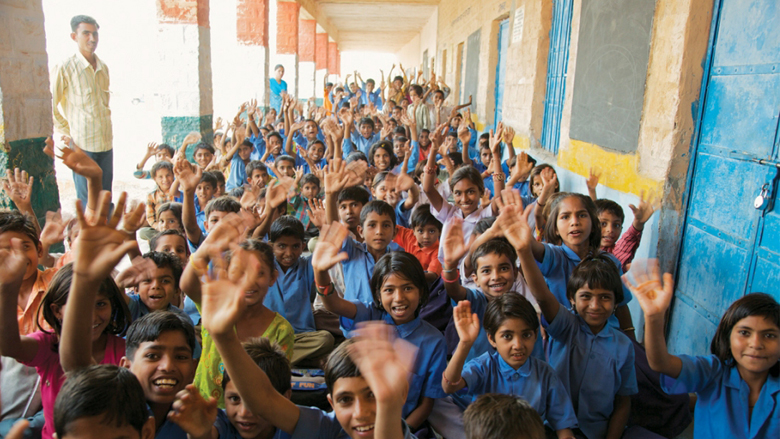The UN general assembly, adopted a groundbreaking resolution officially recognizing sanitation access to, and use of, excreta and wastewater facilities and services –As a human right.
However many Indian families with low income still don’t have access to toilets, thus denying the human right. Lack of sanitation facilities not only hinders the right to dignity but also the right to education is hampered. Millions of school days are lost every year due to water-related circumstances and sanitation. Inadequate sanitation facilities at schools are a barrier to school attendance, especially for girls.
The puzzle of why India has anomalously high rates of poor open defecation is an important one because lack of sanitation obstructs the right to life and health. Due to inappropriate disposal of urine and excreta, the transmission of many infectious diseases is increased including cholera, typhoid, hepatitis, polio, and ascariasis. Diarrhea, one such major disease is directly related to poor sanitation – it kills one child every 20 seconds, i.e. more than 4,000 children every day. This figures is more than the deaths caused by AIDS, malaria, and measles combined.
The Government on its behalf is trying their level best in improving access to hygiene, Mission swachh Bharat launched on October 2014, and has contributed a lot in increasing sanitation coverage in India for about 42 % to 60% in 2013 and 2018 respectively. More than 6.25 crore approx. toilets had been constructed in rural India till date, thereby completing about 80% of the target planned. No other country else than India has ever built so many toilets at a stretch; it is an achievement that every Indian should be proud of.
Change through projects-
To bring some change in the age-old systems, government took an initiative to first educate people. Swachh Aadat Launched as part of HUL’s, Swachh Bharat campaign, this 21-day project aims to teach children (age group of 5 to 10) the importance of hygiene. It has highlighted three necessary habits that every child should adopt and follow on daily basis which includes, washing hands 5 times on different durations of day, using clean toilets and drinking purified water.
Making this project interesting for the children at schools, wide range of activities, various games, and including characters such as Chamatkari Sonu (a superhero) and Kitabyutor (kitab + computer) are employed and brought into experimentation. This enables students to learn either through books or e-textbooks for approx. 20 minutes a day daily. They are encouraged not just to learn for themselves, but to also bring about a sanitation revolution in their communities.
Policies and Programs regarding sanitation should facilitate the participation of civil society (including both men and women) which will guide in designing, implementing and monitoring of local priorities in rural and urban areas. This has raised variety of issues like slow implementation of decisions, misplaced priorities of local government and complete dissatisfaction of the communities due to lack of proper functioning of these.
A scenario, where people are busy searching for jobs and tackling inflation, who has the time to encourage campaigns and brings the required change? Moreover not a campaign but people’s attitude towards the society is much more important.
~Kiran Jadhav
Leading nation towards healthy environment by educating children: Clean India


